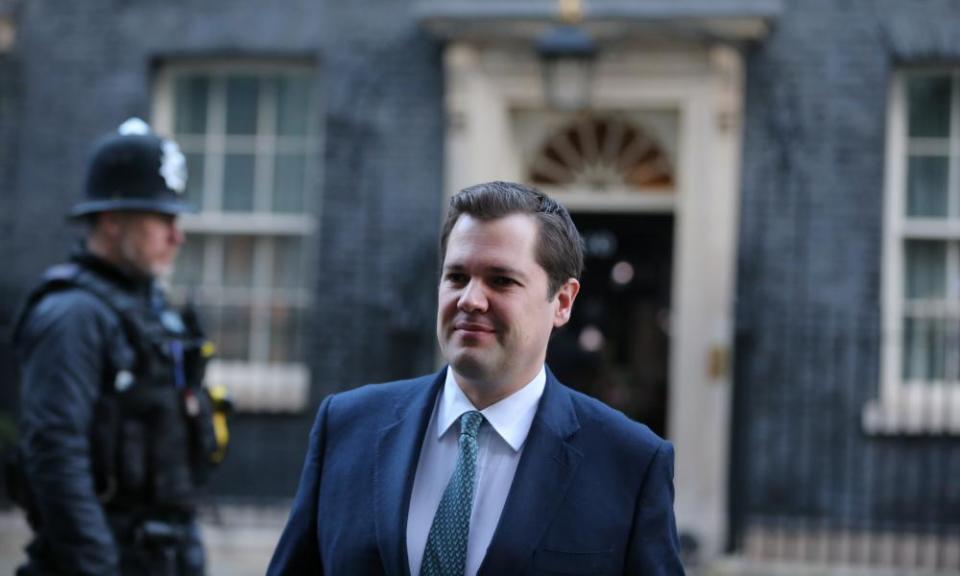English council chiefs back postponement of May local elections

A further postponement to this year’s local elections, in the wake of the continuing difficulties caused by the Covid pandemic, is backed by the vast majority of senior council figures across England, the Observer can reveal.
Only 11% of the senior officials dealing with the forthcoming elections believe they should go ahead in May as planned, despite the government’s determination to press ahead. More than two-thirds (69%) believe the huge set of elections should now take place in the autumn, according to the most comprehensive survey of council chief executives, leaders and officers in charge of organising elections to be conducted on the issue.
A further 14% called for a shorter delay to the summer and 6% backed a postponement beyond this autumn, according to the analysis by the Local Government Information Unit (LGIU). Of the more than 350 officials who responded, two-thirds said they were “very concerned” about holding elections in May.
Difficulty recruiting and training electoral workers, complications in ensuring safety of polling stations and concerns that voters worried about Covid-19 may be disenfranchised are among the concerns expressed by those drawing up local election plans. One Conservative council leader said: “It will be a grave error not to act early and announce a delay now.” Another Tory council leader said: “Go for the end of July or October: don’t tempt fate with May, only to have to call them off. I am really concerned about vulnerable candidates.”
The postponement of 2020’s local elections in England has meant this year’s were to be the biggest in years. They include county councils, district councils, unitary authorities, mayoral races, police and crime commissioners, and the London assembly. Elections also take place for the assemblies in Scotland and Wales. Decisions over those elections are controlled by their respective devolved governments.
The Scottish government has said it is still planning for elections to go ahead, but has emergency powers to delay or to hold polling over more than a day. The Welsh government has said that it intends to proceed in May, but that “significant uncertainty” around the pandemic means a delay may be needed.
Boris Johnson has backed holding elections in May but has suggested he is keeping the decision under review. However, it is understood that the serious concerns among councils about the practicalities of proceeding with the poll have been made clear to Robert Jenrick, the housing, communities and local government secretary.
Four-fifths of those surveyed by the LGIU (80%) were concerned about their ability to recruit and train electoral workers, with fewer volunteers likely to come forward. Difficulties in obtaining polling and count venues have also emerged, while the usual use of schools as polling stations is also proving contentious. Some traditional polling venues are also being used as vaccination centres. “We will not get all the staff we need and we will be lucky to get the venues for polling and/or counting,” said one electoral administrator. “You can throw as much PPE at the polls as you like, if people do not want to volunteer to work, we can’t run the elections.”
Some insiders expressed concern about the democratic problems created by a further delay. After elections were delayed last May, some councillors and mayors will have exceeded their original mandate by 18 months if voting is delayed until autumn. Some local councillors have already stood down in their area because they could not serve beyond the scheduled end of their tenures last year.
Jonathan Carr-West, the chief executive of the LGIU, said: “Local government is committed to democracy, but the overwhelming view from councils is that it is no longer possible to hold safe and open elections in May. The logistical challenges are formidable and there’s a real risk that we effectively disenfranchise millions of people who do not feel safe going to the polls.
“The worst scenario of all would be for government to push ahead only to have to make a U-turn late in the day, when councils will already have spent a fortune in money and time preparing. Better to take a bold decision now to delay the elections and use the additional time to ensure they can be run safely. Such measures should include the vaccination of poll workers and an expansion of postal voting. Public confidence in elections is an essential foundation of our democracy – once lost, it takes years to rebuild. That risk is not worth taking.”

 Yahoo Finance
Yahoo Finance 